The Scoperang
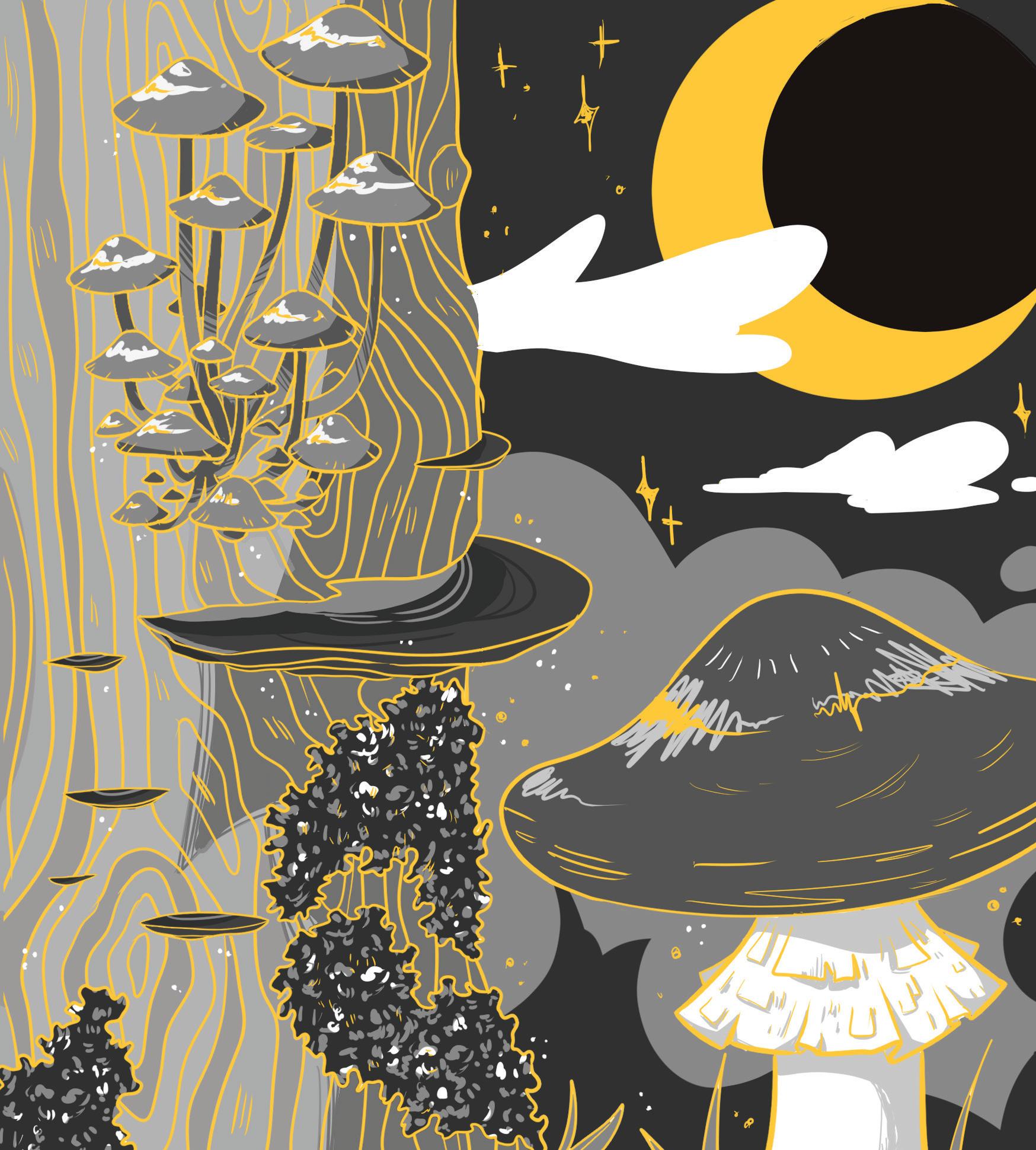


 By Shirin Mahmoud
By Shirin Mahmoud
I was 13 when I first felt truly ashamed of my body. My crush had touched my legs and said, eyebrows raised, “Someone didn’t shave today.”
Shame sits in the pit of your stomach. It surges through your face, creeps into your throat, and tries to asphyxiate you. Shame is the belief that you are a bad person, undeserving of love, and it is fueled by fear. We are afraid that people will stop loving us if they uncover the truth about who we really are, what we do, and what we believe.
Guilt, shame, and embarrassment, are often used interchangeably, but there are some differences between the three. Embarrassment is essentially harmless. We feel embarrassed when we experience something that threatens the image we have of ourselves, or the image we want others to have of us. It is comparable to awkwardness and really only hurts our ego.
Guilt concerns our behaviors and tells us that we have done something bad. It occurs when our actions do not align with our ideal self. You will never completely get rid of guilt and that is fine, because it can motivate a positive change in behavior and self-growth. If I make a joke at someone else's expense (albeit a great joke), I will likely feel guilty afterwards, which will not only compel me to apologize, but also impede me from making similar jokes in the future.
Shame, on the other hand, concerns who we are as a person. It tells us not that our behaviors are bad, but that we are bad, recognizing that one action does not define us will help prevent guilt from turning into shame.
Shame is not only an awful feeling but also a catalyst for self-punishment, bred from self-hatred rather than selflove. It is paralyzing, debilitating, and makes us want to hide and escape self-awareness. Thankfully, there are a few steps we can take to mitigate the impact shame has on our lives.
You need to realize that although shame tells you that you are a bad person unworthy of love, this is not, and can never be, the case. Love and worthiness do not have prerequisites: they are unconditional. You do not have to change who you are or what you do to be worthy of love. You do not need to be a better person, smarter, kinder, skinnier, or more productive. Love is not something you have to earn through hard work. You are worthy exactly the way you are right this minute. You deserve love, even if shame tells you otherwise.
Practice self-love
There is so much shame surrounding self-love and confidence for the fear of coming across as arrogant or conceited. We hide what we are good at, minimize our achievements, talk down to ourselves and make ourselves small, all in an effort to not be perceived as arrogant. We shame others for loving themselves and we shame ourselves for the very same thing. It is time to get out of that vicious cycle. Hype yourself up. Stand up straight. Gather the strength and vulnerability to break through the fog of shame that surrounds confidence and realize it is lovely to love yourself.
Courage, communication, and connection
Connection and honest communication with people you trust are the true antidotes to shame. Shame festers when we try to hide it. Ignoring, denying, retreating, numbing, and lashing out are all natural reactions to shame. But overcoming shame cannot happen if we do not talk about it. Resilience to shame requires openness, honesty, and non-judgmental communication. If we can be open and truthful with each other about how we feel, if we can react with empathy and compassion rather than pity, and cultivate a real connection, then shame will not be able to take hold of our lives. Instead, we will take away the soil of silence and secrecy it grows from.
Unleashing shamelessness in society
If we unleash our own shamelessness, we will stop being judgmental of others. As the queen herself, Brené Brown, so eloquently put it, "We cannot claim to care about [feminism] if we shame other [females] for the choices they’re making."
If we unleash our own shamelessness, it will encourage others to do the same. Courage has a beautiful ripple effect. If you are the first one to say something, to admit something, if you break that barrier, you show the rest of the world that they are not alone, that it is okay to come forward and speak out.
If we unleash our own shamelessness, we will promote healthy dialogue around topics like female pleasure, masturbation, and body hair (to name only a very select few) and before you know it, something that was once a taboo, something to be ashamed of, something to not do and something to not talk about, will become the new normal.

There is a scene in the wishy-washy 2017 Power Rangers movie where the five rangers are sitting around a bonfire, bonding through sharing their deepest secrets. The yellow ranger, Trini, remarks how moving around the country keeps her parents from finding out about her relationships. “Boyfriend troubles?”, the black power ranger asks. She responds with something sarcastic, so he follows up with “... girlfriend troubles?” Other than saying that her parents would like for her to dress more lady-like and that she doesn’t “know what’s really going on” with herself, Trini never acknowledges her sexuality, or specifically, her hinted-at queerness. The moment takes up less than 30 seconds within the 124 min. run time, over with as quickly as it started. News outlets raved about the alleged strides the movie was making toward the inclusion of characters with diverse sexualities. The Hollywood Reporter’s article on the scene boasts the headline “‘Power Rangers’ Breaks Ground With First Queer Big-Screen Superhero”. Affinity’s one reads “The Yellow Power Ranger From The New Movie Might Be Queer And We’re Here For It.” “'Power Rangers' Gay Character: Here's how Becky G's character addresses her sexuality,” reads a Mic article’s title (spoiler: she doesn’t).
The phrasing of Affinity’s headline shows the underlying issue: Trini might indeed be queer… but it’s never fully embraced. With Trini’s backstory and her sexuality’s implications barely delved into, it comes off as a ‘blink-or-you’ll-miss-it’ bit that doesn’t even register like a coming out. Though not explored in that familiar, awkward way whereby it becomes her entire personality, Trini’s sexuality is not expanded on in a way that is significant for her arc either. The result is not empowering, pivotal, or groundbreaking, it’s disappointing. Trini’s is a character written as queer just for diversity’s sake, merely a token
Trini’s case is far from the first one. That same year, when Disney released the live-action Beauty and the Beast, it teased the introduction of Gaston’s henchman LeFou as Disney’s first-ever gay character (or so read another over-enthusiastic yet awfully misleading Hollywood Reporter headline). In rewatching the movie, I missed any moment signifying that LeFou might be queer — was it the dreamy way he looked at Gaston? Or when he danced with a villager who turns out to enjoy crossdressing? We’ll never know, ‘cause that’s as much fuel as we get for our speculations.
Maybe Disney felt too bad about the missed opportunity, so much so that when production began for 2021’s Jungle Cruise, it claimed we would finally get the first-ever openly gay character.
Enter McGregor, played by comedian Jack Whitehall. In the press leading up to the film’s release, Whitehall described McGregor as “effete” and “very camp” — questionable indeed, but unfortunately accurate in retrospect. McGregor stands out for his bright white suits, his aversion to dirt, and his fondness of luxurious items all on top of his bombastic, jittery, dandy persona. Come time for the big moment, he reveals that he’s following his sister around the jungle for having stood up for him whenever their family insisted on marrying him off to women. “My interests happily lie… elsewhere.” And… that’s it.
It is true that despite these steps not being big, they’re still something (except LeFou’s case. That was an unsalvageable mess). To see this kind of ambiguity one could potentially interpret as some characters still questioning their sexual identities is still a very real part of coming out and coming to terms with it (there’s still a Q in LGBTQ+, after all). Alternatively, that characters like Trini and McGregor’s don’t ever pin down their sexualities lets the viewer freely make up their own mind as to where in the LGBTQ+ spectrum they might stand. Is Trini a lesbian, bisexual, pansexual, or questioning? You decide! When you consider that the predecessor of LGBTQ+ characters’ limited onscreen visibility was blatant absence — essentially erasure — then these small moments could feel monumental.
However, LGBTQ+ audiences should not have to settle for crumbs to get dignified mainstream representation in 2022. Even knowing that studios deliberately water down compelling LGBTQ+ storylines to be able to market their films to conservative audiences, every half-assed attempt still pains me. By shying away from depicting openly LGBTQ+ characters (whether they come out on screen, are shown in a queer relationship, or have their sexual identity brought up in a meaningful way relevant to their development), it denies us figures to identify with. It symbolizes that our sexualities are not meant to be embraced and celebrated, but just erasable for making profit. It tells us that our stories are not worth sharing, just weaponizable to make us tokens. Some cinema cannot claim to be exemplary emotional escapes when its narratives still overlook people like us, or when they don’t do the process of telling stories about us justice.
Illustration © Annelise van den AkkerI’m the first wife in the attic
I sit by the window and carefully wave I smile occasionally and when he walks by I let the last few wisps of an already dying flame release itself and I take a cigarette
It’s a long drag in my Sunday clothes and my bedridden hair
I’m the first wife in the attic I’m scared
I’m ashamed
I’m also seventeen
I’m the first wife in the attic how did I sacrifice so much when I wasn’t even the one in love are you satisfied or are you going to ask me to make this worth your while will this finally quench your thirst I’ve placed my heart on my sleeve For all to see
It’s a spectacle for the next
Will they marry me in a ceremonious glaze reserved only for first hand owners will they remain in a perpetual state of ignorance like you did or will they find it within themselves to hold me or will they divorce the idea of consistency or stability or happiness or respect or compassion or love
Does the idea of a love, messy and so far from the one you offered me feel like salt on your healed wound or will you be writing these vague inconsequential writings on my book or will you watch as I dance with someone who thought of giving me something you were proudly withholding from me I know you ask yourself why I never let myself be with you I think you know why Or maybe you don’t
I’m the first wife in the attic
I’m sorry I’m just a little occupied holding someone I love in my arms
I’m dancing to this song that I love and I’ve even let them move the furniture around we are drenched in the light of the refrigerator and I’m dancing
I’m not just jumping
I’m dancing
this is my take on love
And your hands weigh a dozen glazed donuts And lucky for you, I don’t like them anymore
I’m out of the attic today
I’m learning to applaud myself I really did know better wish me luck god forbid
I might be someone’s wife someday
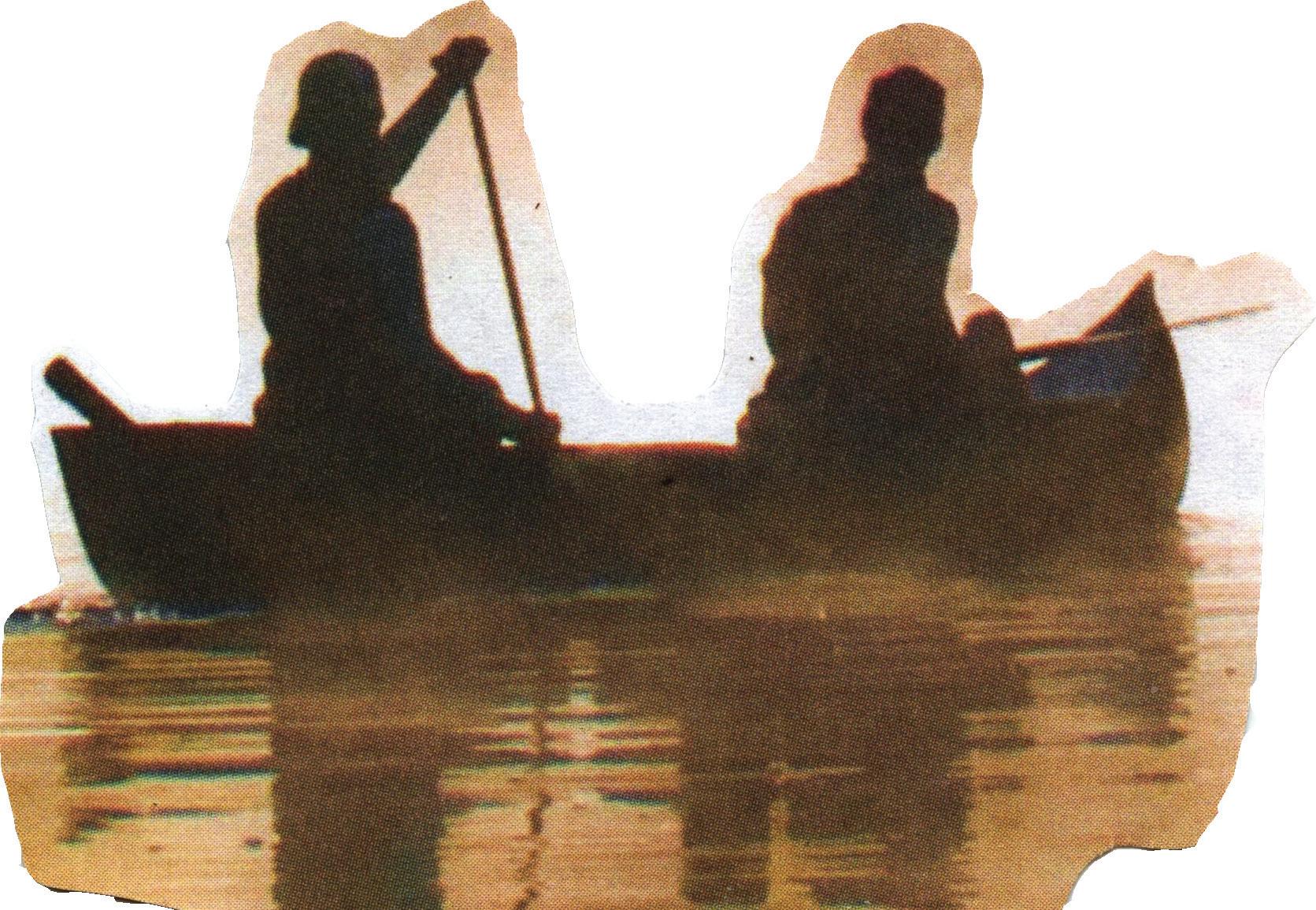

When the human body is wounded, a maelstrom of subcutaneous battles is quietly waged. Traumatized tissue cells release a distress call, inflaming nearby capillaries to secrete a battalion of white blood cells and plasma fluid. These guardian proteins construct a barricade, cutting off blood loss and warding against bacterial and toxic assailants from the outside. Isolated and injured, the visible part of the clot dries and hardens, forming a scab.
During my senior year of high school, I felt crushed by a severe depressive episode. I couldn’t get out of bed, speak to anyone, eat regular meals, or sleep for more than a few hours at a time. Although I had experienced previous episodes akin to this, none had felt so paralyzing, so bleak. I had learned to function by walling off my anxiety and depression; I fiercely love my friends, passionately dive into academics, and actively engage with my community. However, this emotional safeguard began to insufficient, and I did the only thing I could to protect myself from the onslaught of dread and world-weariness: I shut down. I languished in mind-numbing distraction. If anxiety was a thunderstorm, striking violently and randomly, depression was a slow, creeping, perpetual fog. Although not initially crippling, it slowly filled me with dread and purposelessness, until brushing my teeth resembled pushing Sisyphus’ boulder uphill.
Deep beneath the barricade of proteins, whispers of transformation begin to sound. Delicate capillaries inch towards the surface like vines, laying down the foundations of new tissue. Fragile and prone to bleeding, they are accompanied by fibroblasts; these connective tissue cells spin intricate collagen webs, suturing the margins of the wound together and pulling in existing blood vessels, infusing the wound with sustenance.
Months passed this way, and despite intermittent periods in which I was able to garner enough strength to rise and rejoin society, I didn’t attend prom, graduate from high school, or go to college. In January of 2020, the fog finally began to lift. One day, I successfully got dressed, the next day, I read a chapter of a book, the day after that, I exercised. It was gradual, and at times, terrifying, but through my network of support I found an environment in which I could heal.
Supported by new growth, the surface epithelium begins the dance of regeneration and reformation. In complex harmony, epidermal cells divide and the underlying dermis contracts, thickening the epithelium until the haggard scab dislodges.
In September of 2020, I moved to Arkansas to volunteer on Heifer Ranch, where I befriended a lamb named Rosie. Rejected by her mother in infancy, Rosie was bottle-fed by farmhands and spoiled with love and affection. It became clear that, as a result of her increased ease around humans, she stood as a comforting companion to anxious ewes in need of medical treatment. Once, while administering a shot to a placid ewe, I turned to Rosie, bleating peacefully in the corner. In that moment I reflected on how she transformed her past trauma and isolation into an abundance of love and fortitude of strength for others.
From a distance, the former battleground now resembles the adjacent skin; an untrained eye would never suspect that the thin white line was once a war-torn landscape. Yet, beneath the surface, the wound continues to mature as strands of collagen twine together; the tensile strength of the new skin improves, better equipped for survival.
My new skin will never completely regain its former strength, nor will my scars ever fully disappear. My reformed tissue knows loss; it knows distress, disruption, and most pressingly, what it means to cease to exist. And yet, it knows protection; it knows growth, connection, and most importantly, resiliency. As one of my favorite authors, Kahlil Gibran, writes, “Out of suffering have emerged the strongest souls; the most massive characters are seared with scars.”

I was thinking to myself what I could possibly write about for this month’s Scoperang release with the theme ‘bloom,’ when a pretty basic pun hit me. In Dutch, bloem (pronounced the same) means ‘flower,’ and what better way to celebrate spring than with a colourful bouquet of those? The number of times I’ve biked past Janskerkhof on a Saturday and wished I had the time or money to spend on the lively market there is unbelievable. The mere sight of flowers makes me warm up inside; daisies everywhere, dandelions in varying stages of transformation, daffodils springing up like weeds, those cute purple grape hyacinths all huddled together, shy little snowdrops, rainbow-hued seas of tulips, and other fields full of crocuses. My personal favourite of these side-of-the-road variants is definitely the bright blue forget-menots though, and I think most UCU students share my sentiments that passing by that dense chorus of flowers on the right side of the road leading to Wilhelminapark is a magic mood-booster.
Now, as a professional budgeter, I could just recommend you to go and pick a collection of these rogue spring flowers, but, as a frequent flower-picker, I can also guarantee you that these. will. not. last. I must admit, I always used to be sceptical of this seasonal investment, until one of my unitmates brought back a large, multicoloured bouquet that immediately improved the visual vibe of our living room. More than that, the act of giving flowers is such a brilliant gesture, not even to mention the wholesome feeling of receiving them! I also felt hella empowered when I decided to buy myself some during exam period last semester, and I think romanticising everything about life while walking around with a mysterious bunch of fine-smelling flowers is worth it.
So, where in Utrecht can YOU achieve such temporary happiness in floral form? Other than the market I mentioned earlier, on weekends (9:00-17:00) there are several stands along the Oudegracht, namely between the HEMA and Broodje Ben (side note: I think this is the best sandwich spot around, but I’m open to being proven otherwise), and another a bit further on, in front of city hall. After some online digging, it turns out there are also multiple flower shops that are open on a daily basis. The most student-friendly ones are ‘BLOEM!’ in the Central Station, ‘Rood en Bloem’ in the heart of the city, and ‘Fiore Utrecht’, which is closer to campus. And for those of you that would rather not interact with the florist, there is even a vending machine in Hoog Catharijne that sells flowers cut on the same day they are displayed! Alright, I guess that brings me to my official recommendation: be a brave babe and go into town to buy that person you’ve had your eye on for a while, your unmissable friend, a visiting family member, or just yourself, a good ol’ bunch of flowers. You never know what pleasant surprises might bloom out of such a trip ;)
Illustration © Ida van Zwetselaar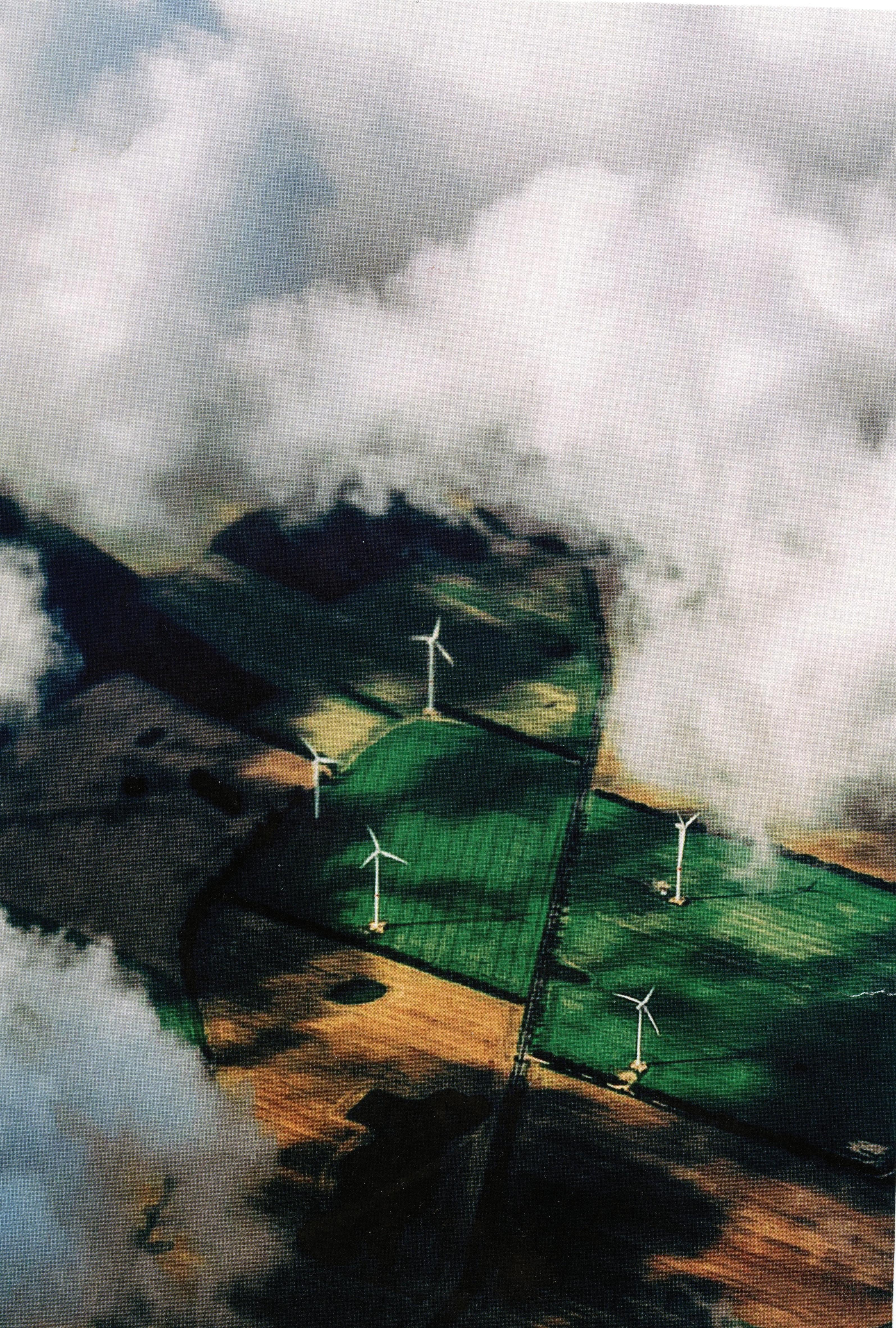
Ever since I was a little girl, I sold wine for my family’s vineyard at the annual Salon des Vignerons Indépendants in Strasbourg. My parents needed the help, but they also wanted to initiate us to wine tasting and selling, so that one day, we could take over the family business.
At first I only observed. I took mental notes of my father’s hand gestures as he talked to clients, how he opened the wine bottles and which tone he employed to talk with clients. I understood there was a ‘right’ way to do things. There were small signals that meant you belonged - or not. With time, I was given more responsibilities, and eventually, I held the stand without my father’s help. I made sure I knew how to pour correctly, which vocabulary to use, and exactly where to place my nose when smelling the wine. I wanted so badly to be accepted in this world that would one day be mine. I knew I wanted to be a winemaker, and I felt excited at the idea of upholding the family business. Still, I felt something was holding me back.
Years of experience working for the vineyard has shown me the elitism in the wine world. I became used to those countless looks, the ones that kept reminding me: "you don’t belong here". As a 20 year old girl, many peopleespecially old white men - questioned my legitimacy in selling wine and made me feel I didn’t have a place behind the stand at the Salon. Only once I said I was the daughter of a winemaker did people start listening to what I had to say. Yet even then, I knew I would be instantly called into question if I did not do everything the right way.
I grew up learning that wine brings people together. My father calls it a ‘social lubricant’. But, in practice, I felt like it branded people more than anything. Wine is fancy, wine is expensive, wine is arrogant and inaccessible. Wine is not for you. How, then, could I want to be part of this world which is only open to a select few?
Many people have told me wine is elitist because it is too expensive. I believe the real issue lies elsewhere. One day, my father told me: in France, many people choose to spend money on bottled water instead of drinking tap water, which (in France), is free and safe. With that money, they could buy one good bottle of wine a week, and drink tap water instead. "Wine isn’t for rich people", he said, "it’s for people who were taught to appreciate it". Of course, this is often correlated with wealth and class. But it doesn’t have to be.
I started WineCo so that more people could learn to appreciate wine. Together with my board members, we hope that this small initiative might transform the preconceptions surrounding wine, and allow people to feel comfortable discovering this drink which to me symbolizes family, tradition and passion. Maybe in ten years, when I sell wine at the Salon des Vignerons Indépendants again, I’ll feel more comfortable, in a space which will have opened up and diversified, giving space to curiosity and discovery.
it has always struck me as an unfortunate deed that i only truly like the poetry i write when i bleed
for months now a smile had kept me mute a re-mended heart new friends and dreams to pursue
perhaps i was too happy to work with a pen but the careless joy made me drop my artless heart again
how did i forget the number one rule: hurt them before they have time to hurt you
why did i ignore the thoughts in my head?
now i’m being thumped for words i left unsaid
who is to blame for my bend to expect a bit of consideration or a little respect
what did i do to make you avert and so desperately try to ensure i got hurt
when did it all start crumbling down?
just because you felt breathless you wanted to see me drown?
you gave me a load of pain that i have to unpack but i must thank you for the heartbreak that brought my poetry back
So there’s this little space see
Or sometimes it’s little, sometimes it’s ridiculously vast
It curves and swells
It shrinks, and may turn to stone
But never forever.
It sweats in silence
And you ask, how can nothing perspire ?
How can empty ooze ?
Yet it does. And it seeps into all corners
You on one side, the world on the other.
That space, tell meHow will you color it in ?
will you stay inside the lines ?


I need a second, a minute. Or maybe a lot of seconds, a lot of minutes. An infinite amount of minutes and seconds. A friend of mine has died. He was not really my friend, or we were not close. But he knew my name and I knew his. We would have stopped in the street and chatted if we ever spotted each other amongst the crowd. I knew things about his life, and he knew about mine. I know he was smart; I know he was kind; I know he got drunk fast and that he liked watches. Or did he? I remember he had a nice watch. He also had a funny accent in English. He was in love with her.
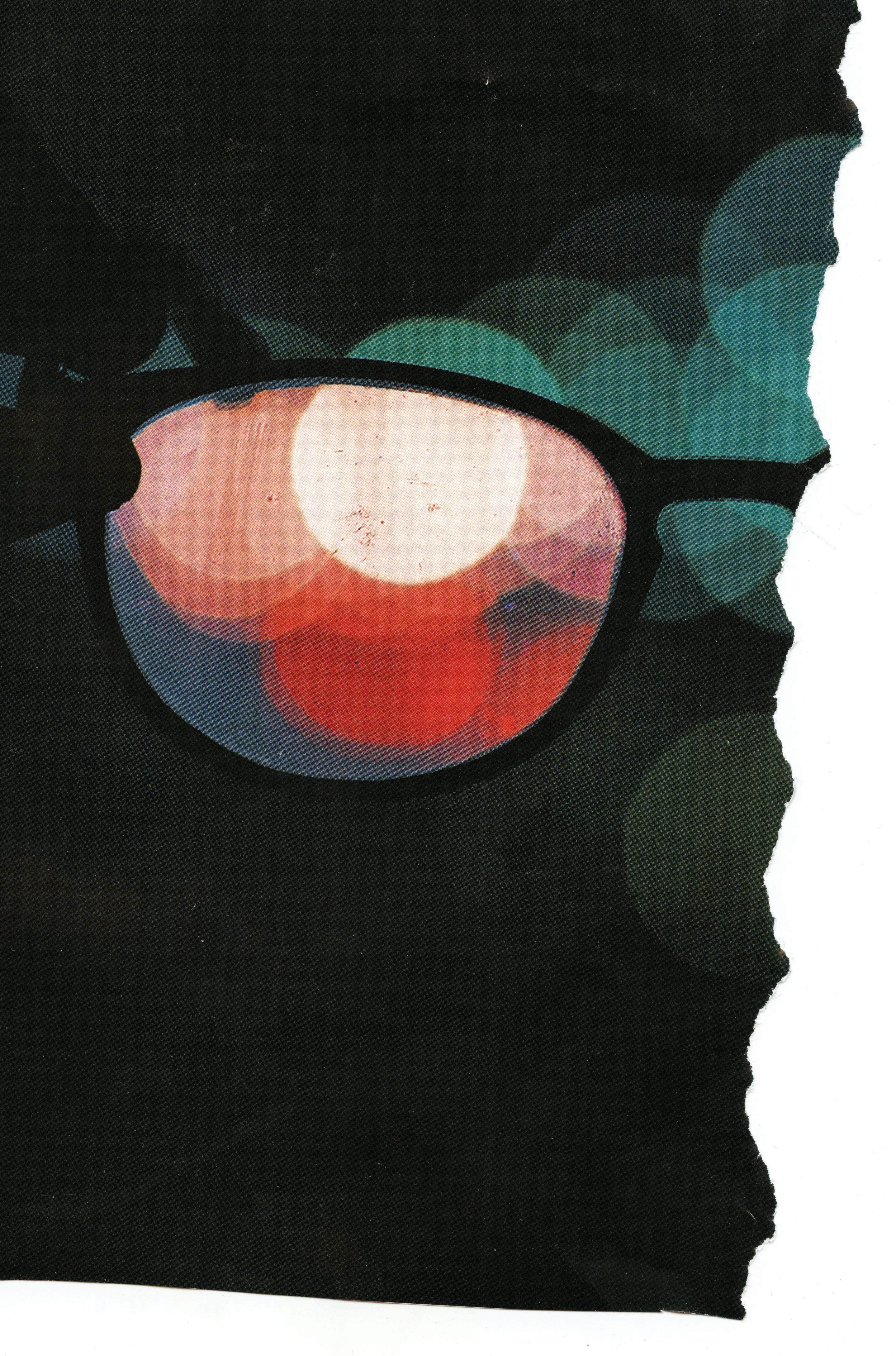
On the day of his funeral, I wore black, but I was far, so no one really saw. But it didn’t matter. His life was celebrated somehow.
We always talk about how life is a cycle. Is blooming our youth? How much is it worth to stay bloomed forever? I see pictures of him, the ones that I took last summer as we shared hours sitting in bar terraces in between gothic buildings, the smell of salt on our skins, taste of beer at the tip of our tongues. We talked about ourselves, about our future – his desire to escape home, his scholarship to Stanford, and my urge to re-root. In these pictures he is in full bloom. Tanned skin, wide smile, one eye always a bit more closed than the other. In these pictures he will stay blooming forever. Blooming becomes the end, and not part of the cycle. He will never change. A flower forever with its petals open, never wilted. I used to be so scared of growing old, of simply turning 20, of getting wrinkles and gray hair, of graduating from university – of following the cycle. My grandma says that every birthday is a privilege, that to change and wither is as important as blooming. I think I might start believing her now.
He bloomed; how can I say it?
Blooming is the last thing he did
And his hair will never turn grey.
During my time here at UCU, it would only be an understatement to say that things (including me) have changed. Coming here all those months ago, a simple, (way too) optimistic, Dutch girl, I had no idea what was yet to come, and how I was yet to change (read: bloom). Of course, who does? I found this, the uncertainty of personal change, particularly scary. But now, after almost three years, it is feeling pretty surreal to look back and compare myself to that girl. A girl that was desperately trying to find her way around this place and to simply fit in. Now, I do realize that that latter has often not been the case, due to both finding an increasing amount of confidence and a decreasing amount of giving a fuck, I eventually found enjoyment in standing out (and particularly in standing up for what I think). And with regards to finding my place, I realized after a while that the right people make any place feel like home, which I especially noticed after spending (way too) much time with my unitmates and close friends. In December of 2020, after having been here for more than a year, most of which was spent in lockdowns and quarantines, I wrote the following simple thought piece that I’d like to share.
13-12-2020
I like how normal all of this feels, how much it feels like home.
I know that this is the place for me, and the normality I am feeling for something rather peculiar only shows/proves this.
I like the rhythm I found and the people I found it with.
I like how I laugh when I’m with them and I like laughing about their laughs when I can hear them from another room.
I like this overall feeling of actual love, not just towards them, but also their love for me. I like how we speak about this, how we admit it and that we constantly remind each other of the love we’re feeling.
This place, these people, make me feel like home, and I wouldn’t have wanted it any other way.
I hope that for everyone they will, eventually, feel this same way. I hope you find yourself along the path UCU has given us and that you grow into the person you wish to be and, above all, that you will find the people you want to bloom with.

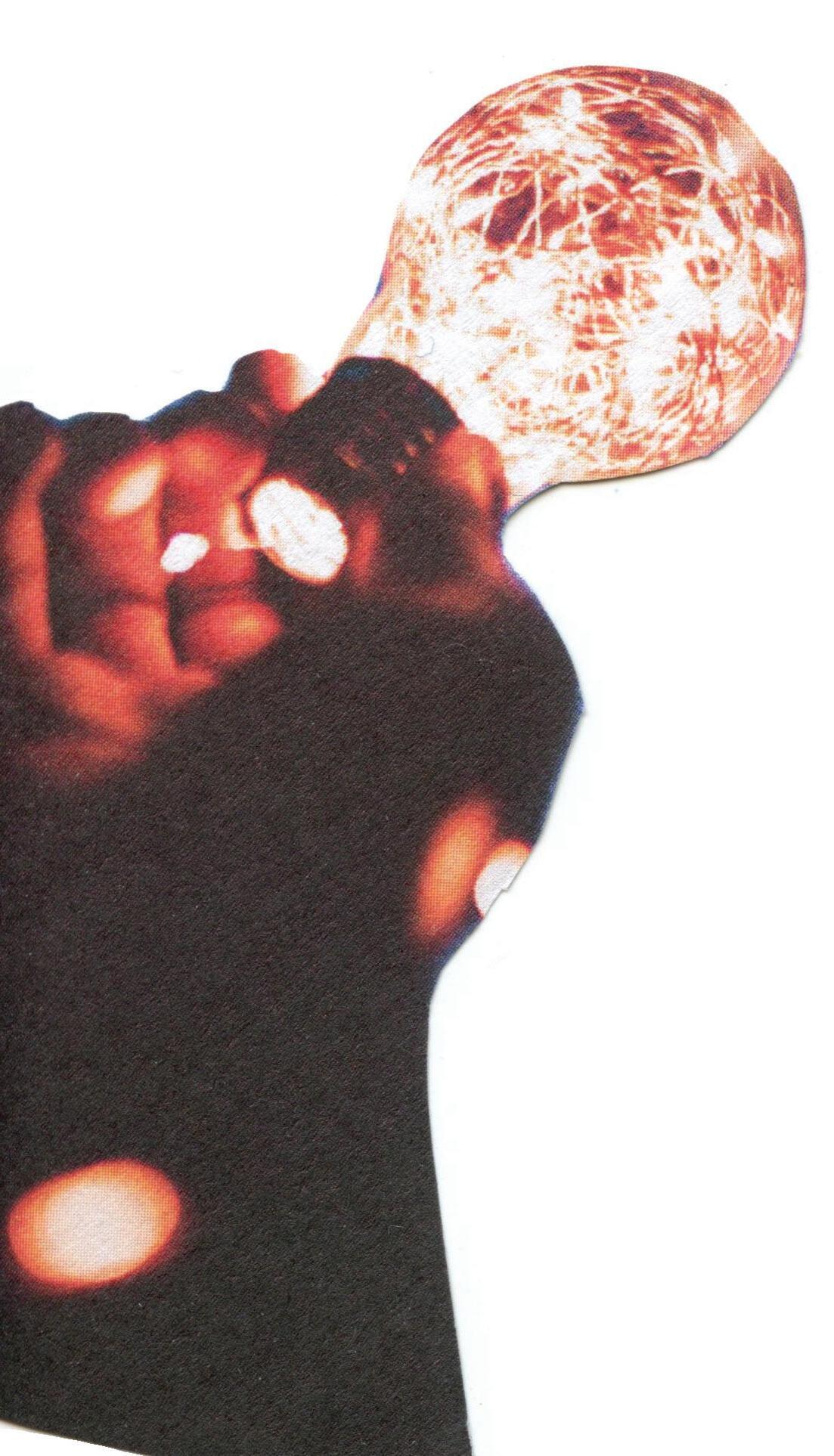
Liqueur en fumée
Zèle de mémoire en bouteille
Le moment me rapproche et le rapport des témoins, des semblants, est semblable au Raccord des notes qui nous unissent.
Les vapeurs s’estompent, se condensent
Les rayons de soleils s'éparpillent dans la bouteille de liqueur
Aspect amer mais goût de ferveur
Les tapis de lilas s'étalent dans un creux de coucher de soleil
Les nuages valsent ensemble
Dansant la chaise musicale pour savoir qui portera les robes de pastel citron-aperol
Ca me rappelle cette lumière d’lampadaire qui éclaire mes souvenirs
Comme à l’époque où on était en tête à tête, Laissant dans nos sourires des goûts nostalgiques, genre idylliques.
Et nos syllabes qui s’écrasent dans le sable, Se mélangent au cendres de nos cigarettes, laissant des arômes complices
Ce sable si doux
Si insignifiant
Valse au rythme de nos chansons
Au rythme des saisons qui lui tendent la main.
Et vu que les choses vont bien
Ca me donne envie te tendre la mienne
Et vu que les choses vont bien
Ca me donne envie de prendre la sienne.

1. In a large mixing bowl, whisk together the flour, cream of tartar, baking soda, ground cinnamon and salt until well combined. Set aside.
2. In the bowl of a stand mixer fitted with the paddle attachment, or in a large mixing bowl using an electric mixer, beat the butter, granulated sugar, and brown sugar together for about 1-2 minutes or until well combined. Mix in the egg, egg yolk, and vanilla extract until well combined, stopping to scrape down the sides of the bowl as needed.
3. Add the dry ingredients and mix until just combined. Cover tightly and refrigerate for at least 1 hour.
4. Preheat the oven to 350°F (180°C). Line large baking sheets with parchment paper or silicone baking mats and set aside.
5. Remove the cookie dough from the refrigerator. Using a 1 tablespoon cookie scoop or measuring tablespoon, scoop the cookie dough onto the prepared baking sheets. Each ball of cookie dough should measure about 3.18 cm once you roll it into a ball.
6. In a small mixing bowl, whisk together the 1/4 cup of sugar and 2 teaspoons ground cinnamon for the coating. Roll each ball of cookie dough into a ball, then coat in the cinnamon sugar mixture and place back on the baking sheets, making sure to leave a little room between each one.
7. Bake for 8-10 minutes or until the tops of the cookies are set. Remove from the oven and allow to cool on the baking sheet for 5-10 minutes, then transfer the cookies to a wire rack to cool completely.
How did you get the recipe? Does it have a special story to it?
Yes it does, both my parents love to bake and, mind you, are brilliant at it. Whenever I made cookies I would always make my mom’s iconic chocolate chip cookies, but in second year I wanted to change it up so I asked my dad for the snickerdoodle recipe because they are a particular specialty of his. He was the headmaster of my high school and on special occasions he always used to wake up early and bake these for all the teachers. They were a massive hit with the unit and became an almost weekly occurrence
What is the best part of the recipe? Making it? Eating it? Or both?
Definitely both, it is so much fun rolling the dough balls in cinnamon sugar, and there is nothing more beautiful than a warm cookie fresh out of the oven… especially when they make the whole house smell amazing. You do have to endure a little pain waiting for the dough to chill, but it is so well worth it.
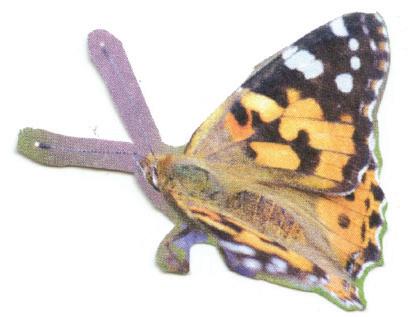
- 3 cups (375 grams) all-purpose flour, spooned & levelled
- 2 teaspoons cream of tartar
- 1 teaspoon baking soda
- 1 teaspoon ground cinnamon
- 1/2 teaspoon salt
- 1 cup (230 grams, or 2 sticks) unsalted butter softened
- 1 cup (200 grams) granulated sugar
- 1/2 cup (100 grams) light brown sugar packed
- 1 large egg room temperature
- 1 large egg yolk room temperature
- 2 teaspoons pure vanilla extract
For the cinnamon sugar coating:
- 1/4 cup (50 grams) granulated sugar
- 2 teaspoons ground cinnamon
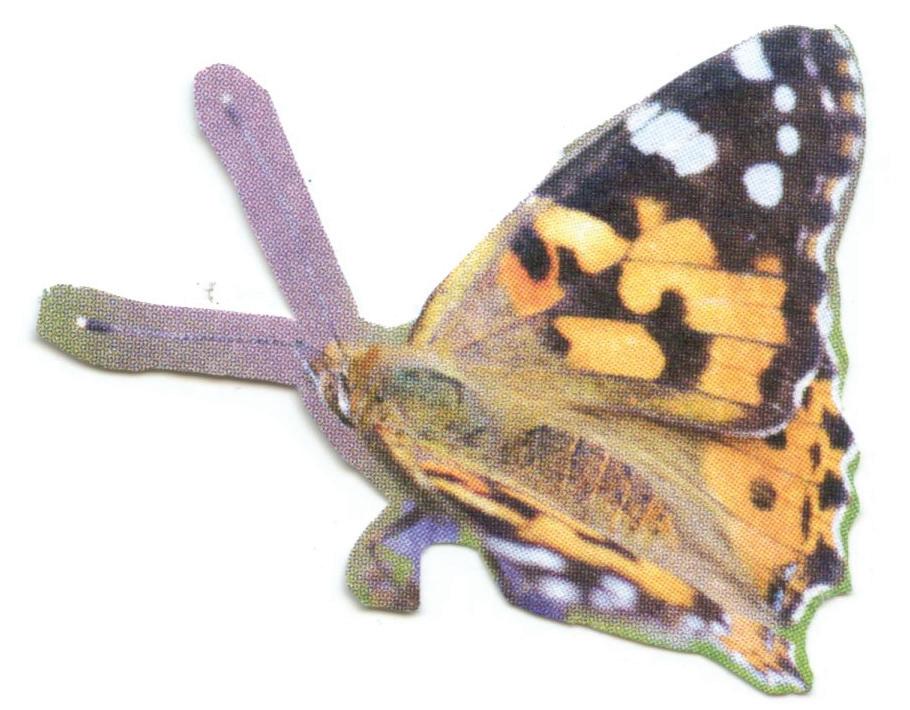
When did you start cooking?
I started baking a lot in high school after my mom taught me her chocolate chip cookies, and from then onwards it just became a cheeky form of procrastination because I still felt like I had been so productive with my time.
Do you have any food traditions?
Not so much at UCU, although I do love baking with my old unitmate Olivia, and we always try to make some new gourmet dessert. They pop off every time. With family we have loads of holiday traditions, like a Danish Christmas dinner, and recently a charcuterie board has become a standard too. Every year we also do a massive dessert, something like a pie or trifle, and in it there’s a hidden almond (sometimes a Hershey’s kiss). If you find the hidden almond In your serving, you get the ‘almond gift’ which is just a small fun present.
Cooking tip of the month
Vanilla is to baking as garlic is savoury dishes…. always put more than the recipe says. Also, don’t underestimate the power of a touch of salt to balance a sweet dish.
Do you have a memorable story related to cooking?
Luckily, I have never had an accident in the kitchen, which is probably because it is hard for things to go tragically wrong when you follow recipes as meticulously as I do.
Are there any people that inspire you to cook?
Without a doubt my parents, because they are both such good and enthusiastic home chefs. My dad loves to bake, which I think is not super common but he probably got it from his mom; he gets so enthusiastic and creative, like his spud nuts which are ultimately doughnuts made with mash potatoes leftover from thanksgiving… I don’t know how he does it but they’re amazing
With whom do you like to cook?
Probably with Karolien and Olivia. But I really do find it so much fun and therapeutic to cook on my own, especially on a gloomy day in, and to follow it up with some Gilmore girls and a hot cup of tea.
If you don’t text me back within five minutes, I will buy the tickets without youby Hilde van Son
If you don’t text me back within five minutes, I will buy the tickets without you I’m going to have you listen to country-pop, indie-rock, Dutch R&B and I’m going to turn it on right now. I’m going to have you read experimental semi-philosophical, semi-ironic gibberish and I’m turning the page right now.
I’m going to have you look at half-impressionist, half-Dadaist graffiti art and I’m buying the ticket right now. I’m going to introduce you to the supposedly meaningless world of opiniestukken, I am going to have you sworn in as full-fledged member of this alternative artform-appreciating subculture, I am going to have you in- and exhale radicalism, I am going to have you blend in with the population. You will wish to have turned out to be invisible, you will be my newest artwork, I will let you get lost, I will let you lose yourself in speaking many words, but saying very little, in leaving everything for interpretation, I keep remembering that I am being pursued, no persecuted in my dreams, I keep dreaming successions, I want to succeed, I want to tell you that I hate you, I want to hate you, I want to leave you stranded (but I’m afraid I would miss you).



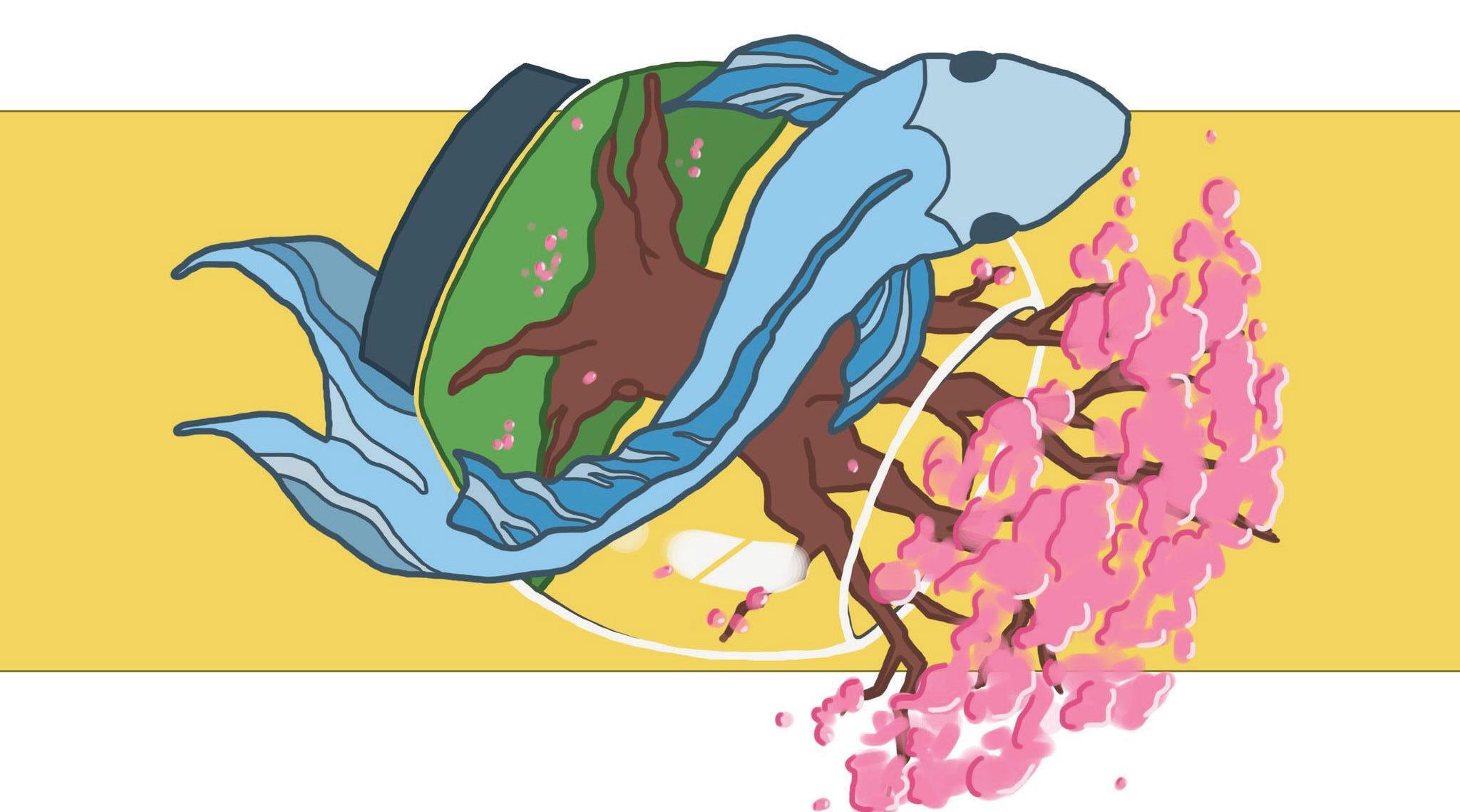


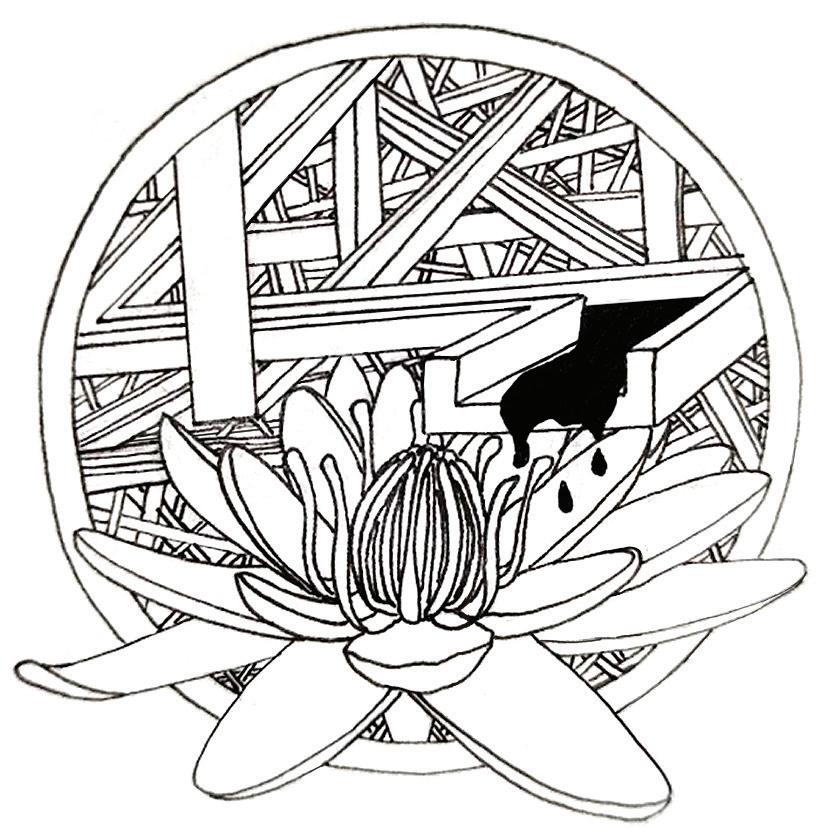
Home is taped together pieces of disappointment, Who we are and who we could’ve been, Agony hidden by jokes and screens, Party plans to replace the heartbreak jams.
The leap of faith I take to cope
Sees for a warmer future
When we can cry and hold each other
As if there is nothing left to crumble.
The pain will grow strong stems to hold
The petals of kindness we’ll spread at home.
Illustration © Maja Anuszewska Illustration © Aga Kubica
Come outside, stop with me for a while, I grasp your hand and pull you gently to the ground.
Be still and listen carefully to the faint rustle of the new spring leaves, the soft chirps of birds, the light flutter of wings, the thrum and throb of nature-murmurs, my heart pulses steadily as I draw nearer.
Soften the heavy weight of your shoulders and feel the sun rays caress you, cover you like a weighted blanket, warm, suffused, impossible to ignore, the lush, downy grass beneath you, the faintest traces of morning dew are left behind and glisten on your fingertips, my breath ghosts over your skin in a spiral, a barely-there whisper.
Part your lips and taste the fresh air, crisp and clean, the ripe apricot I carefully feed you, the skin resists your teeth for only a moment before it gives way and bursts sweet and tart all at once, my spit on your sticky tongue when I press our mouths together and you invite me inside.
These were taken the month between finishing my high school exams and leaving for college. It was a month that went by quickly, a month spent with friends, a month not thinking about the future that was swiftly approaching, or when I would ever come back here again. I didn’t realise my days were counted. This was the only place my family’s house became a home, and that moment in time now suspended, motionless in memory.
It all flows back. The balmy streets filled with the gentle hum of people talking and going about their day, the singing and drumming from the temple, the bugs chirping in the trees. The tropical sun makes everything an eternal gold. Yet I know things do not stand still. Everything succumbs to change eventually, perhaps even photographs.
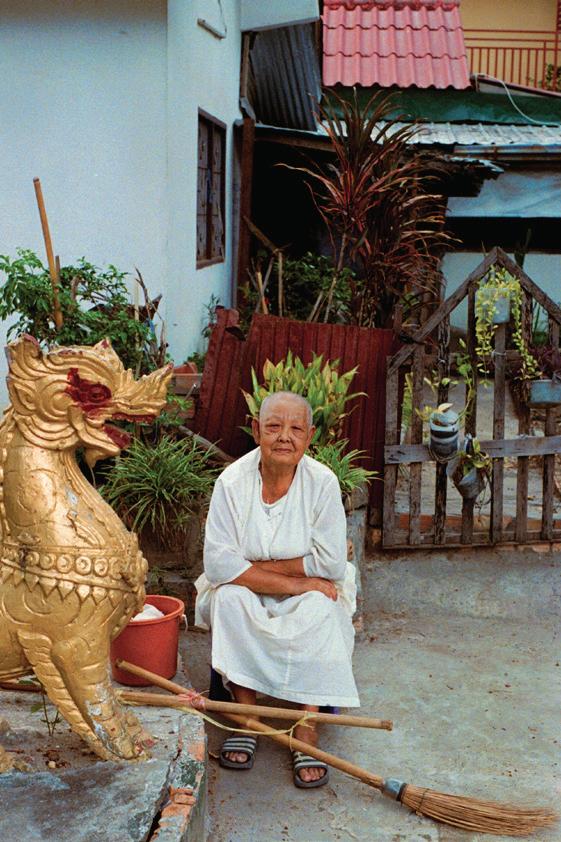
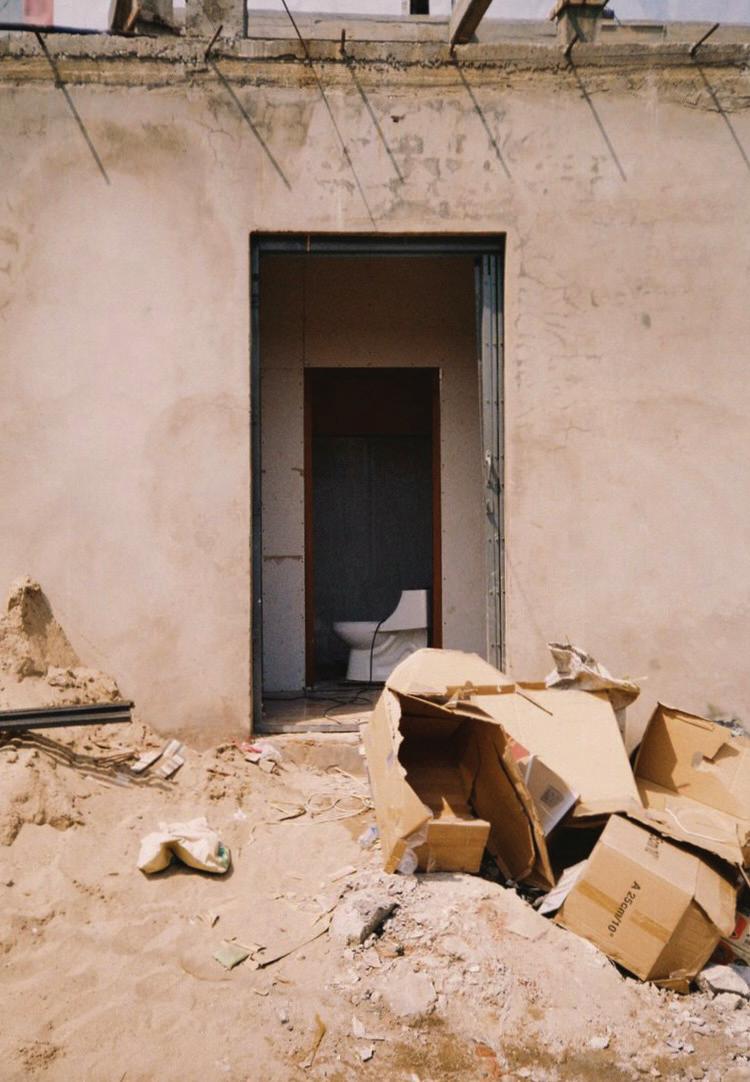



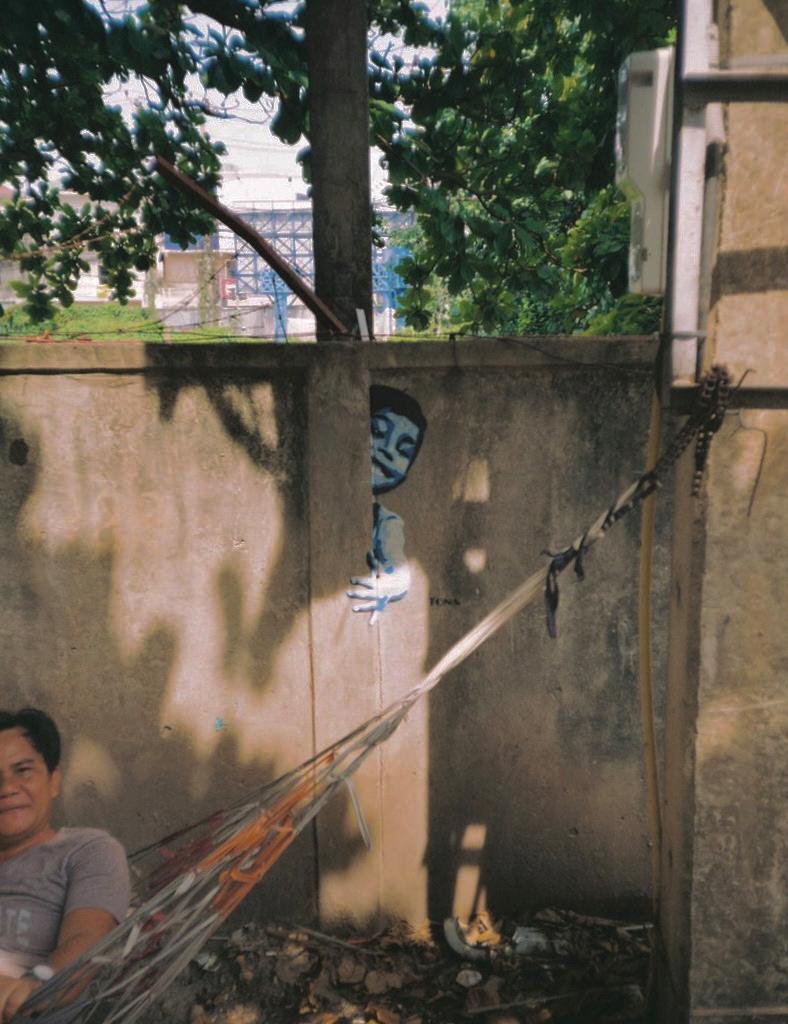
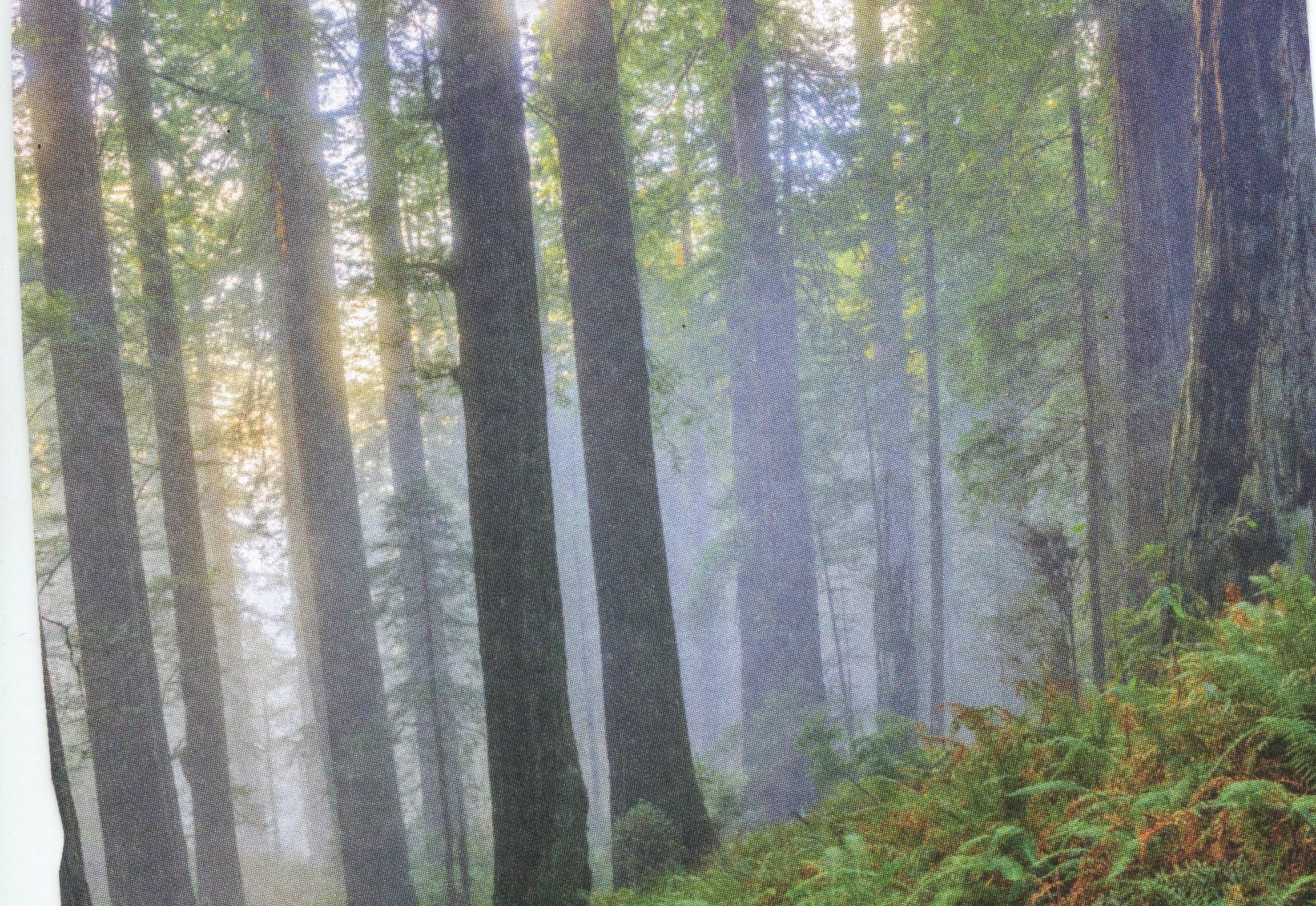
They taught us about you today, little planet. They said your name means ‘wanderer’ because you allow yourself to be moved without attachment or intent and yet are always exactly where you want to be, flying winglessly through the euphoric euphotic. We learned that each drop of ocean holds a microsolar system where you bloom together with your friends—the one that wears armour, the one that is glowing or burning. Little planet, today we learned that all this time, undiscovered by alchemists, you’ve been turning light into oxygen. Little planet, I wanted to thank you for being our creator—the perfect meal for the critter who is the perfect meal for the creature who is the perfect meal for the cetacean. Thank you for your worlding.
Little planet, I know that every breath I take undoes you a little and yet, you hold these words to your body as each one turns your universe into a stomach, gargling as it begins to digest.
This month’s film is the life-changing experience that is Mustang (2015). I’ve been trying to make my friends watch this film for over a year now. Maybe after reading this, they will be convinced.
Even though published in black, I always write these columns in colour when I send them to Boomerang. Hot pink to dark maroon, night sky blue to mad red of love; each film deserves a colour. Mustang’s share is a good bright yellow because flowers can’t bloom without the sun. So, please keep in mind that the words you are reading right now are actually yellow.
Mustang tells the story of five sisters. They live in a village near Trabzon in northern Turkey. The smaller the village, the more conservative it gets, and our village is quite small. The film starts on the last day of school. Fresh early summer breeze and sunshine! Butterflies are holding hands and birds are singing Nancy Sinatra! In this scene set for the perfect teenage dream, Lale and her four sisters are walking home from school. They are playing around with their friends, a group of boys. They all stop by the sea together for a nice water fight.
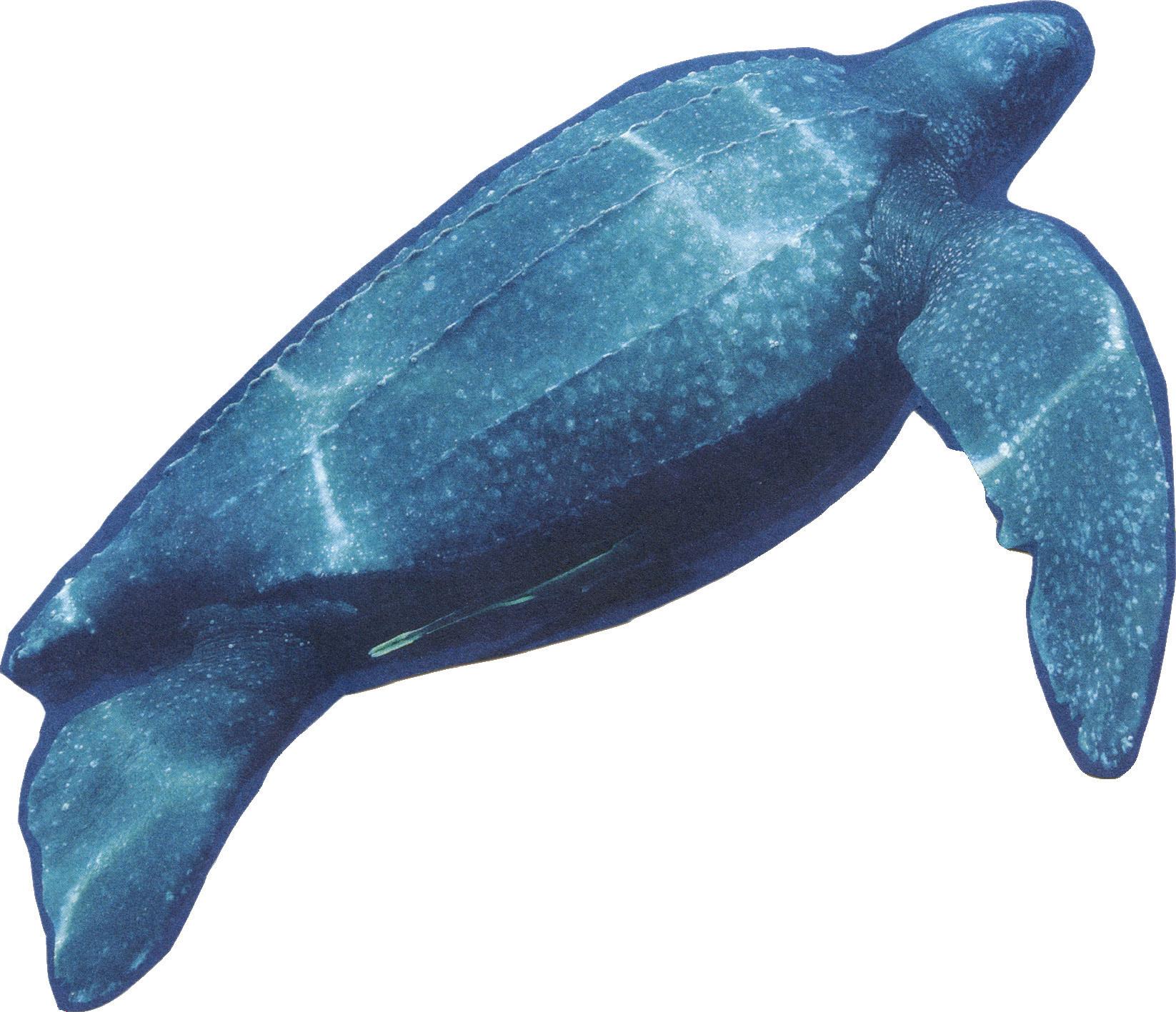

It’s impossible to watch this Krommerijn-like scenery without a smile on our face.
Whispers arrive at their house before they do. A nasty surprise is waiting for them, that is, an angry grandma bothered by how “inappropriate” their behaviour was. “NO!” she says. No jokes with boys, no short skirts, no loud laughs, no jumping, no running. This marks the beginning of their new life. Their house has now turned into a “housewife factory”. Instead of going to school, the elderly are teaching them how to cook and do chores. Throughout the film, we watch the sisters fight against what’s imposed on them. They say YES to love, YES to dance, YES to laughs and YES to freedom.
Deniz Gamze Ergüven is a Turkish film director. She moved to France when she was young and finished her education there. The film is shot in Turkey, and it is spoken in Turkish exclusively. Despite how Turkish it is, Mustang is a French production. Moreover, it represented France in the Oscars and at the Cannes Film Festival. The film was loved by audiences and critics internationally. But in Turkey, the reactions were extremely polarised. While some loved it, some thought it was
“inappropriate”. This makes me think; if Ergüven hadn’t moved to France, could she have made this film at all? Probably not.
Female sexuality is still a big taboo in some parts of Turkey, and the idea of girls making their own decisions is too threatening. In an interview, Ergüven is asked which parts of the film are real and which are fiction. The film is based on her and her mom’s experiences growing up in Turkey. Forced marriage, withdrawal from school, virginity tests and beatings are completely real and upsettingly common. Fiction comes in at the instances of hope and resistance. “When we were accused of having done something disgusting because we had sat on the shoulders of the boys, we were just completely mortified.” says Ergüven, regarding her childhood. “We didn’t say anything. The characters in the film voiced the courage that we wished we had.”
Regardless, the film cannot be reduced to a “bunch of depressing events that some girls go through.” Mustang is about how the drive for freedom can revolt against oppression, Mustang is how it’s like to be a teenage girl, Mustang is how flowers still bloom even if you try to crush them.
When we think about bloom, we often think about flowers. Maybe we think about picnics under the cherry blossoms between dining hall and tower. We might envision the bright pink petals moving through the crisp wind. We might relax as we imagine the fading seasonal depression spring brings or fear the escalating allergies to come. But not only flowers bloom, resulting in a beautiful, pollen-filled scene — people, our beauty and our personality, are often said to bloom when at their most vigorous. We can blossom in our youth, as we come of age, are in our ‘prime’, or when we find ourselves in our old age. Blossoms can represent pleasure, and love and relationships of all sorts can bloom. But there is even more that blooms. A good
community or university can be a flourishing one, and ideas can blossom in your head as they come to life. When making bread with dry yeast or sourdough, starter is activated by a process called blooming. And then while being baked in the oven the crust opens or blooms where slashes have been made. A bloom can be a delicate powdery surface deposit on certain fresh fruits, leaves, or stems. It can be a grayish-white appearance on chocolate caused by cocoa butter rising to the surface. A bloom can even be a full, bright sound in the music you listen to or play. A bloom of fire, color, or light means it becomes glowing and radiant — that’s why cheeks can bloom and blush. Yes, I’ve been pondering about things that

Tempus fugit, read the subject line of the email announcing my high school reunion. Time flies.
My impression of reunions mostly comes from Hollywood. I imagine throngs of nervous gray-hairs shuffling into their old school gym with freshly ironed shirts and newly cut hair. In movies, the cast of characters never changes much: there’s the nerd-turned-neurosurgeon, the jock pulling up in a rented Porsche, the businessman, the cashier. Old flings are rekindled. Old quarrels reignite. Above all, reunions are an opportunity to assess whether the images we had of peopletheir futures, their identities, their strengths and weaknesses - had any bearing on reality.
So when the email showed up in my inbox two weeks ago, the first thing I did was book a haircut. The second thing I did was Google a get fit quick routine. And the third thing I did was open up my old school assignments folder in Google Drive, presumably for reasons of nostalgia.
My school nominally subscribed to bildung, the German educational philosophy of self-cultivation. This sounds very nice on paper, but it basically means that teachers liked making us fill out self-reflection forms (“I didn’t spend enough time on verb declensions, oh Lord, grant me an indulgence”). One of these assignments, for Dutch in the fifth year (2018), was called “My Future”, and it involved responding to a series of prompts about study choice and “self-knowledge.”

bloom. The quick bubbling up of coffee grounds and carbon dioxide that occurs when freshly roasted coffee is brewed is also a bloom, which looks like the mushroom bloom formed by the explosion of an atomic bomb (ka-bloom!). When you pour it in, milk blooms in coffee, like blood in water which also blooms. Algae is another thing that blooms in water, an excess of nitrogen, a frothy, scummy, paint-like overgrowth, green, blue, brown, or red and not pink at all like the cherry blossoms. Algal bloom is not a sign of humanity blooming. Fungi bloom in a similar way that flowers do, and similarly they wilt, and decay, and the cycle of life goes on.

Deep in the introspective mood the email had put me in, I decided to have another look at it. The answers surprised and amused me, and so I figured that going over them again would be a good exercise. Hindsight is 20/20, after all, and there’s nothing like a bit of self-reflection about self-reflection to put you in the right mood for a reunion. Because self-cultivation is a team sport, I reproduce my travails here for your reading pleasure. So, without further ado, here is my reassessment of the future that wasan attempt at public service. Let’s take it away.
I think that disciplines having to do with politics and history interest me the most. An academic job sounds attractive to me as well; all I know for sure is that I don’t want to pursue any kind of professional education.
Politics and history was fairly spot on, but I think my “interest in academic work” can best be chalked up to a case of youthful hubris. Two things I've learned about myself at UCU so far are my dread in the face of deadlines and my pathological fear of high word counts. Finding myself! Bildung!
Theory or practice?
I like taking on abstract problems as such, but I think it’s important that the link with the real world remains. I get the impression that people either can’t see a problem separate from its context or reduce it to unrecognizably abstract quackery.
If that sounds like an excuse to drop math, you’d be right. Despite the link to the real world, research in practice didn’t quite end up scratching the itch either, and the job prospects for some of those humanities Master’s programs are making me wish 16-yearold Mats had spent a little less time on this assignment and a little more on binomials.
Because I occasionally set the bar in my head higher than is realistic, my results are sometimes less impressive than they could have been. For example: sometimes I set extremely high goals for a project. These are usually vague, unrealistic ideas. Because I have no idea how to attain these goals, I keep delaying the beginning and end up with a mediocre result.
Part of self-knowledge is realizing that some struggles are life-long. Vague, unrealistic ideas are, however, the purview of the dreamer and the Boomerang columnist’s richest resource to mine from. Turning a negative into a positive can be a life skill as well.
Growing up means looking ahead, but it also requires us to hark back to the person we were from time to time. The future is not singular, and neither is it static - it has a past as well. Comparing who you are to who you used to think you were can be incredibly confronting, but it’s always an opportunity. Sometimes, such an opportunity presents itself - and when it does, we should be begging to take it.
My dearest campus,
There’s a line from this Italian song stuck in my head. It goes, “dai diamanti non nasce niente / dal letame nascono i fior.” Nothing is born from diamonds / from muck, flowers grow.
I write this from a cramped airplane seat, I have just been served coffee, which I sip slowly and carefully; the man behind me keeps obnoxiously shaking my seat, but I don’t say anything. Because I gaze out and the clouds look like fresh snow, there’s a baby giggling in front of me, little flowers of frost curl on the glass of the windows, and I have the row to myself, I could move if I wanted to.
Instead, I think of all of you, of the intimate creations you have sent us. We asked, what is in bloom for you? What is blossoming, or simply changing, in this moment of the earth’s rebirth? What is growing? Or what has already grown? And you answered with hope, with heartbreak; with pain made into peace, and with love enough to share. Thank you.
I am immensely proud of this collaborative edition and all the work that has been put in to make it. I hope you all enjoy, and if ever these pages were to inspire some writing of your own, send to boomerang@ucsa.nl and follow @theboomerang.ucsa to not miss any updates!
Yours always,
Giulia Martinez Brenner Editor-in-Chief

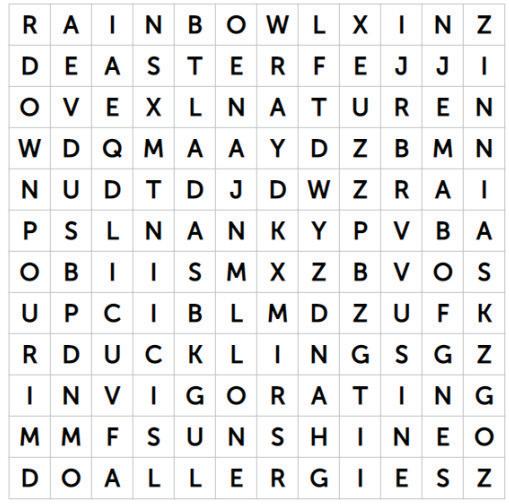
Giulia Martinez-Brenner | Editor-in-Chief
Nina Alberti | Managing Editor
Monse Martinez | Executive Editor
Mats Meeus | Executive Editor
Noor Hofs | Layout Manager
Jana Fragoulis | Art Director
Avantika Bhowmik | PR Manager


Yaǧmur Zubaroǧlu | Editor-in-Chief
Malachi Shapiro | Managing Editor
Floor Steinmetz | Production Manager
Razan Mersal | Layout Director
Lili Brockmann | PR Manager
Sanne van der Wal | Events Manager
Tess Wozny | Sous Chef
Boomerang uses wind energy printers The

